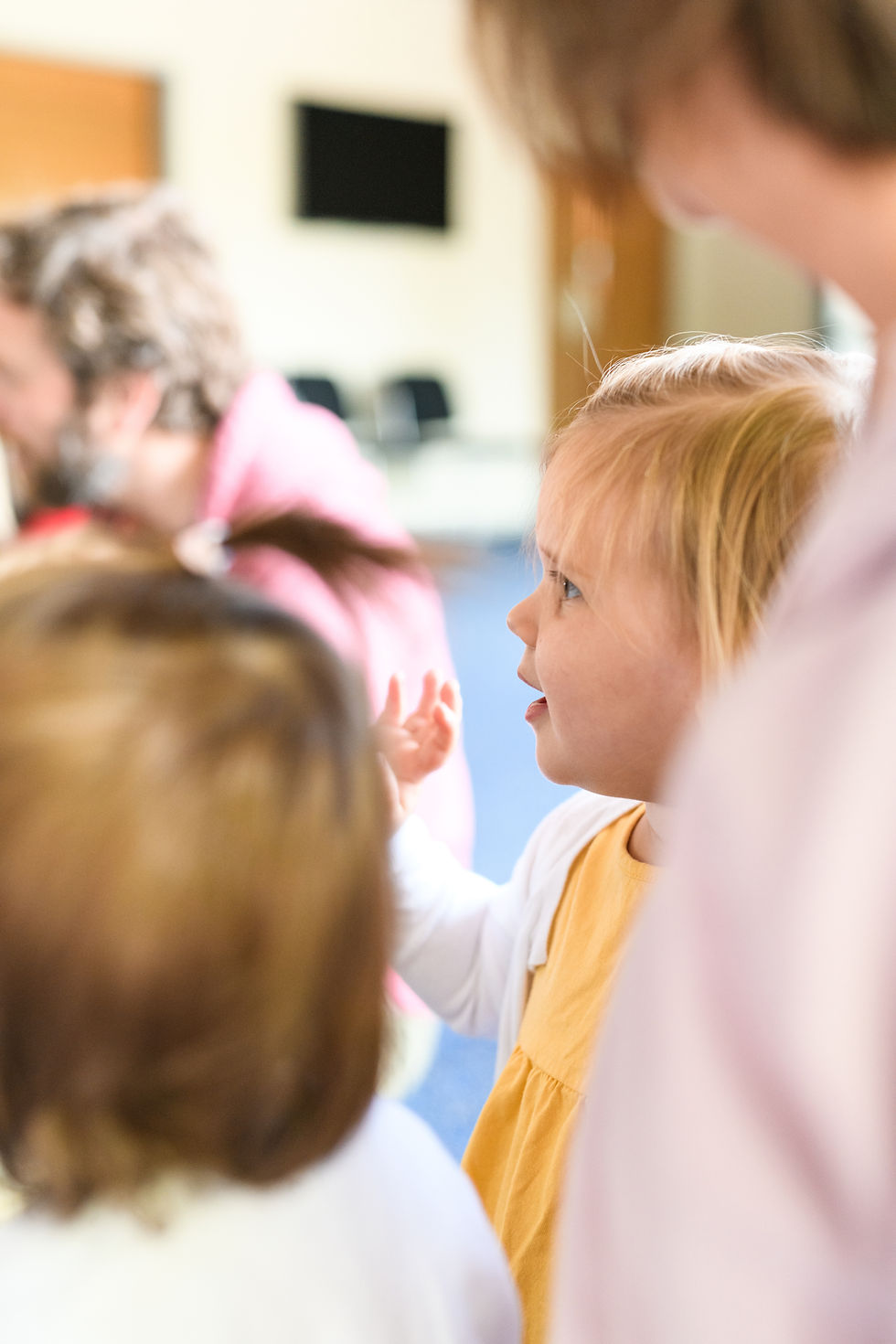One of the hardest things to do in any educational setting, but particularly in more intimate music group settings, is to allow enough space and time for children to really have the opportunity to demonstrate their ideas or to respond in a way that allows us to take the lead from their cue.
Sometimes, particularly when we are working to a time limit, it can be tempting to rush from one song to the next and get through a lovely dynamic session- without much input or creative offering from children along the way.
We know that this can be as subtle as a lift of the eyes in small babies, a small hand lifting or waving in a toddler, a shy preschooler shuffling the scarf they are holding, a sung note or a long sigh, a cheeky idea for the song, a shuffle into the middle of the circle, a squeal of excitement or a giggle.
All of these can be interpreted as musical offerings, that we, the teachers and parents, can use within the activity as a cue for where we go next.
This not only develops the child's confidence, it shows parents how we can use music in the most simple of ways throughout the day a part of everyday routines and events.
When we allow for long pauses, expectant silence and space for children to lead the activity, what we are doing is honouring the pace at which children feel comfortable revealing themselves and the courage to try again.
We are showing them how their small offerings can be developed into whole ideas.
What is the point of a music group? It is not just a fun way to fill a morning, it is where we foster children's deep love of music; where we give them a chance to shine; where their creativity is sparked and their offerings, no matter how tiny, can be offered and developed by a specialist leader.

We encourage all educators in early childhood music settings to allow for those long pauses that give children the time they need to respond and show you what they can offer.
It is in these silences that we see the most remarkable responses from babies vocally. It is also in these silences that we show the older children that their offerings are valued, and that we understand that is can take time to process an idea and feel secure enough to share it with others. Sometimes the offering will be deliberately shared with you, such as an idea for a verse in the song or an idea for what to do with a scarf or a hoop. Sometimes these ideas are cues that we pick up and run with - such as a giggle, hand lift or a bounce.
As always, the trick is to be patient, observant and sensitive to what is happening within the group and to trust that sometimes silence really is golden.


Comentarios